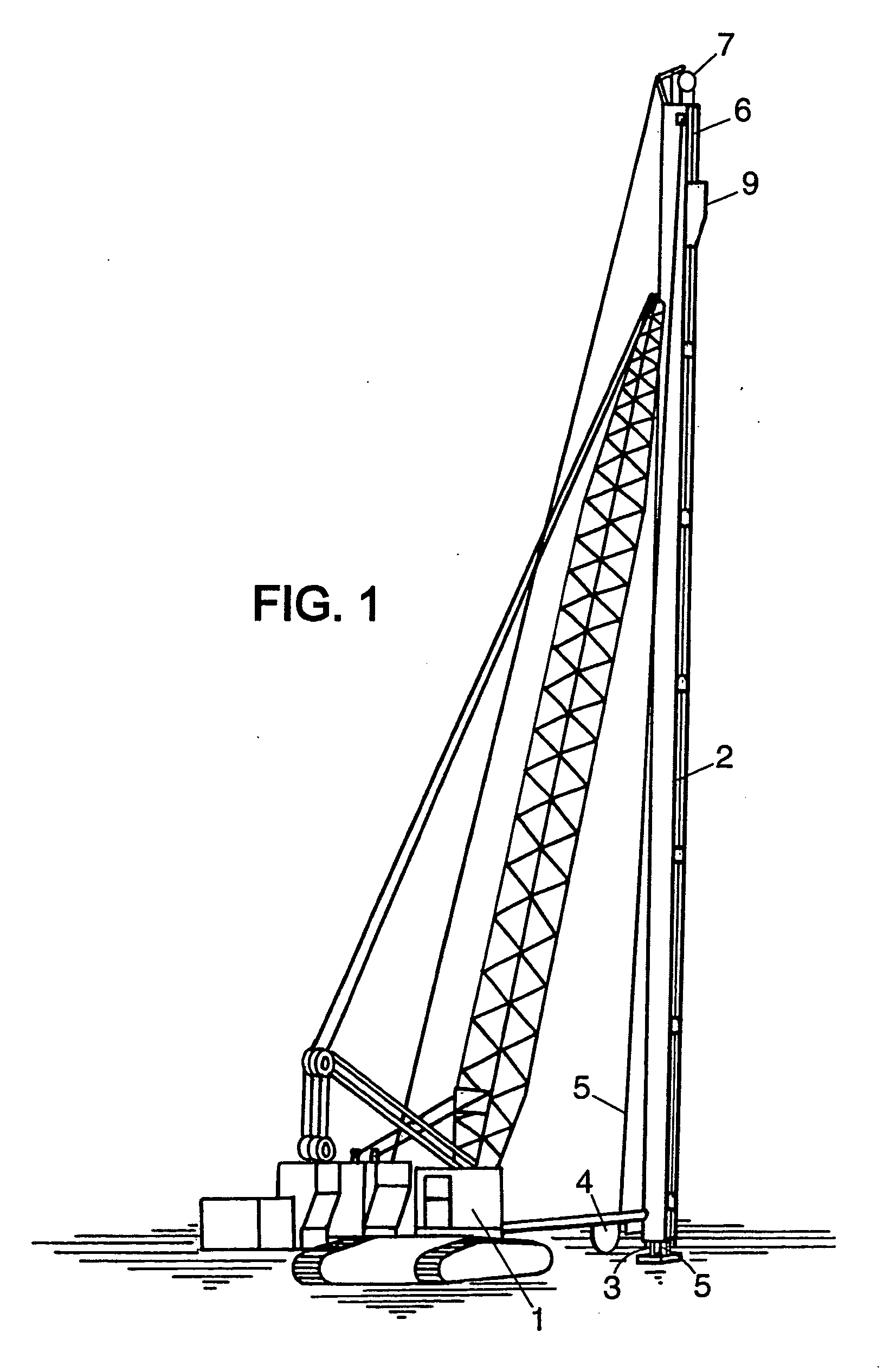Method and device for inserting a drainage wick
a drainage wick and wick inserting technology, which is applied in the direction of irrigation ditches, soil drainage, soil preservation, etc., can solve the problems of increasing the cost, increasing the cost, and reducing the efficiency of the drainage wick, so as to achieve non-slowing process and inexpensive
- Summary
- Abstract
- Description
- Claims
- Application Information
AI Technical Summary
Benefits of technology
Problems solved by technology
Method used
Image
Examples
Embodiment Construction
[0059]An embodiment of a device used to implement an example of a process according to the invention is shown in FIG. 1 and comprises: a frame formed by a hydraulic crane 1; a mast, column, shaft or guide 2; an inserting tube 3; supply means 4 for a drainage wick 5; and a drive member such as a cable 6. Guide 2 is arranged in a generally vertical position in operating conditions.
[0060]The guide 2 may typically comprise a hollow tube for example, which has been inserted or is insertable into the soil. Assuming that the guide 2 has been inserted into the soil, the wick inserting tube 3 may then be moved or directed through the guide or guide tube 2 to transfer the drainage wick 5 into the soil. That is, the inserting tube 3 is moved in a downward direction through the guide tube 2 by means of a loop of cable 6 having opposite ends attached to a fastening element attached to the tube 3. The closed loop of cable 6 fits over the reversing driven wheel 7 at the top end of crane 1 and an i...
PUM
 Login to View More
Login to View More Abstract
Description
Claims
Application Information
 Login to View More
Login to View More - R&D
- Intellectual Property
- Life Sciences
- Materials
- Tech Scout
- Unparalleled Data Quality
- Higher Quality Content
- 60% Fewer Hallucinations
Browse by: Latest US Patents, China's latest patents, Technical Efficacy Thesaurus, Application Domain, Technology Topic, Popular Technical Reports.
© 2025 PatSnap. All rights reserved.Legal|Privacy policy|Modern Slavery Act Transparency Statement|Sitemap|About US| Contact US: help@patsnap.com



